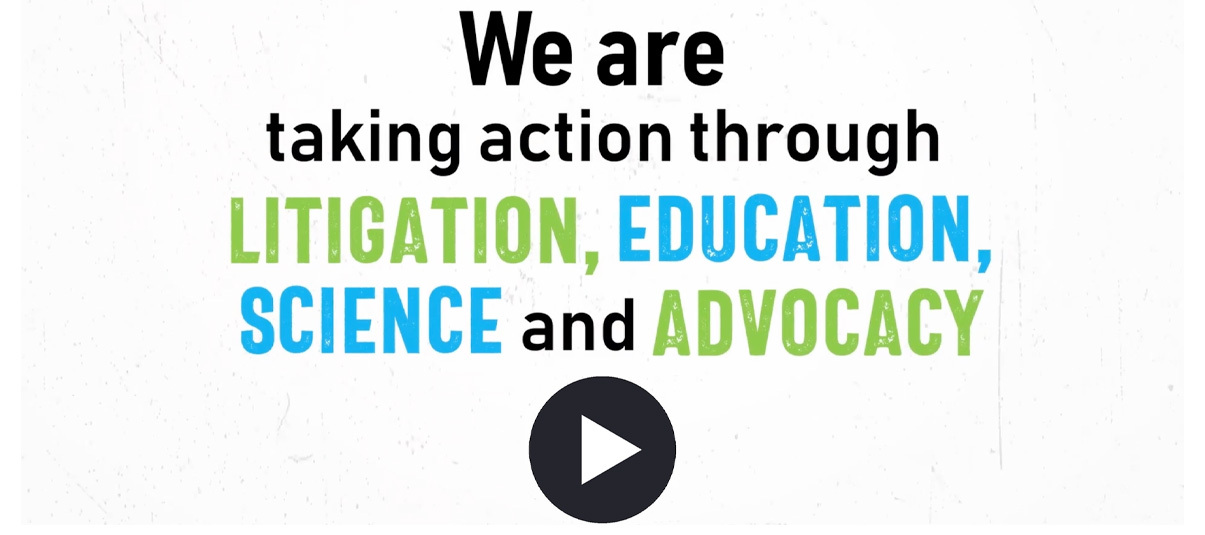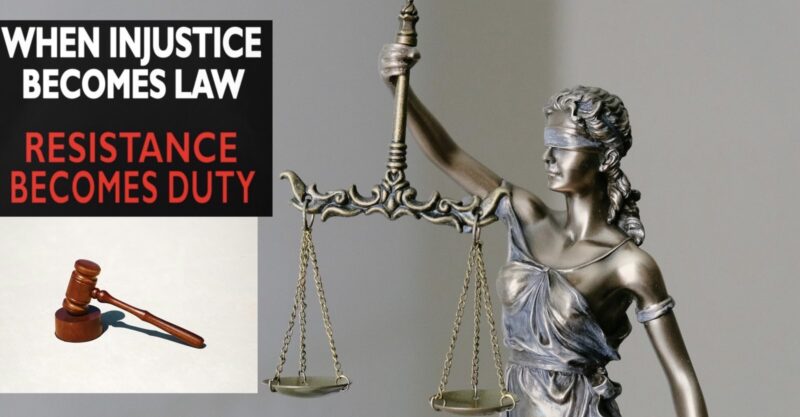The Pandemic of Frivolous and Vexatious fines in Canada
By Christine Colebeck
When COVID first began, the government officials ‘encouraged’ Canadians to comply with measures, for two weeks to flatten the curve, claiming it was to prevent the overwhelming of the hospitals and healthcare systems. The voluntary compliance quickly escalated to advising people to snitch on their neighbours and was enforced by threats of imposing frivolous and vexatious fines against anyone who dared not to comply with the ever-increasing policies, often masquerading as law.
Ironically, the courts were closed, while these fines were being imposed on otherwise, law-abiding citizens. Most Canadians did not fully understand the constantly changing and new requirements, announced regularly on TV by politicians and public health officials.
It was like a giant game of “Simon Says.” Restaurants were first ordered closed, then they were permitted to open and use outdoor patios. After a few months, and the addition of plexiglass, indoor dining resumed only for patrons who were vaccinated and wore a mask. The mask could be fully removed after restaurant patrons were sitting down, a requirement that had zero foundation in any science.
Crossing the border was another learning curve for many Canadians. The Canada-USA borders were closed and prevented people from crossing the land border in their own vehicle but they could fly in an airline cabin, with hundreds of other people, after walking through a public airport with thousands of people, once again; this requirement had zero foundation in any science to prove that these actions would reduce the spread of any virus.
Perhaps one of the most controversial requirements to enter Canada was the mandatory requirement to download and complete an ArriveCAN APP. The now infamous ArriveCAN APP technology was especially difficult for many elderly people to navigate, and violations resulted in people receiving $5,000 fines for contravention of Section 58 of the Quarantine Act
Emergency Orders Orders In Council
Order prohibiting entry into Canada
- 58 (1) The Governor in Council may make an order prohibiting or subjecting to any condition the entry into Canada of any class of persons who have been in a foreign country or a specified part of a foreign country if the Governor in Council is of the opinion that
- (a) there is an outbreak of a communicable disease in the foreign country;
- (b) the introduction or spread of the disease would pose an imminent and severe risk to public health in Canada;
- (c) the entry of members of that class of persons into Canada may introduce or contribute to the spread of the communicable disease in Canada; and
- (d) no reasonable alternatives to prevent the introduction or spread of the disease are available.
- Marginal note: Effect of order
(2) The order has effect for the period specified in it and may be renewed if the conditions in subsection (1) continue to apply.
There was also a requirement of an invasive PCR test to enter Canada. Lack of PCR test compliance resulted in fines of $900. The invasive PCR test was later shown in court to violate the Quarantine Act s14(1). That screening technology should not involve entry into the traveler’s body of any instrument or other foreign body.
14 (1) Any qualified person authorized by the Minister may, to determine whether a traveler has a communicable disease or symptoms of one, use any screening technology authorized by the Minister that does not involve the entry into the traveler’s body of any instrument or other foreign body.
When the courts finally opened up, and proceeded to prosecute all of these frivolous and vexatious fines, for failing to download an ArriveCAN APP or submit to an invasive PCR test, there was a backlog of court cases. The vast majority of these cases were delayed often more than 18 months and which was a contravention to section 11b of the Canadian Charter, that outlines the guarantee of a right to a trial within a reasonable amount of time. (Charter of R&F motion for delay)
“I was contacted by many people to help fight these frivolous and vexatious fines, and what I discovered was shocking to the point that I began helping people free of charge to ensure the scales of justice were truly balanced in Canadian courts.” – Christine Colebeck
The defense of these frivolous and vexatious fines began with an accused person advising the courts that they opted to appeal the tickets and fines. It often took months or over a year to receive a reply from the court with a date for a hearing. The next step was for the accused person to contact the Crown prosecutor on the case and request disclosure of any evidence that would potentially be used in the trial, as it is the right of the accused to have a copy of this information to use in their defense. This is the exact process a lawyer uses and charges hundreds of dollars per hour for; however, with a little education and research, most people can follow this process to take charge of their legal rights and adequately appeal fines themselves.
In one case I was helping with, disclosure was provided to an accused person via email and revealed very few details. Months passed and when the court date finally arrived, I attended the online court proceeding with the accused person, but before we were allowed to see a judge, we were whisked into a private chat with the Crown prosecutor and immediately offered a deal to completely dismiss the person’s two fines. One was for a $900 fine and one was to reduce a $5,000 fine to $500, but this would only happen if the person agreed to plead guilty. When the accused person declined the offer, a new offer was made to reduce the fine from $5,000 to $300, and then finally they offered to reduce the fine from $5,000 to $100. At this point it was clear the Crown prosecutor knew the case was without merit. The accused person stated their intent to plead not-guilty and proceed to trial to let a judge decide. At that point, most Crown prosecutors decide to withdraw the fines completely. However in this case, the crown prosecutor did not withdraw the fine and stated we would go to trial, and we were then forced to wait online through several hours listening to other cases until it was our turn.
It occurred to me that the process involved all the cases of people who were pleading guilty. They were being heard by the judge first. Therefore, it was a punitive process for anyone deciding to plead not-guilty. As the accused and I listened to all the cases before ours, it was surprising how many there were, and it was even more shocking that the first group of cases all plead guilty and took the $500 fine. Once these cases were settled, the people exited the online court so they were never aware that the next group of cases also all plead guilty, yet only paid a $300 fine for the exact same tickets as the previous people had paid $500 settlements! Clearly the second group had held out for a better deal. The final group of guilty pleas paid only $100 fine and had apparently negotiated the lowest possible fine amounts.
Finally, the ‘not-guilty’ pleas had their turn in court. In the case I was helping, the accused advised the judge that he was pleading not-guilty and the Crown prosecutor then asked the judge for a delay, as he was not prepared to proceed. The judge set a new court date for trial several months later so that the accused would go through the entire process again, of being offered a deal and waiting in court until last, because he did not take such a deal. After going through this process twice, the crown prosecutor finally decided to withdraw the charges, and the accused once again had to sit through the court process of waiting until the other cases were heard. The Crown prosecutor informed the judge that the case was withdrawn, and the judge granted the withdrawal which ended the legal merry-go-round the accused person had been on for almost two years.
In another case, the accused also filed a Section 11b of the Canadian Charter, a section that outlines the guarantee of a right to a trial within a reasonable amount of time. The accused opted to decline to settle for a lower fine and went before the judge for the trial. The Crown prosecutor then immediately conceded to the judge that the case would not stand up to an 11b charter challenge and withdrew the case, just as the long-awaited trial began. The judge accepted the Crown prosecutor’s withdrawal and after many months wasted in the court process, the accused was finally free of the frivolous and vexatious fines, without being extorted to accept a reduced fine and plead guilty.
Many people contacted me and informed me that they obtained pro-bono paralegals through various organizations that were funded by public donations, but they were required to plead guilty and agree to accept a lower fine, as the paralegals did not want to take on pro-bono legal cases, they only wanted to negotiate settlements. Therefore people were told they had to plead guilty or would have to pay a lawyer if they wanted to fight.
Imagine if these wrongfully accused people had retained the services of a lawyer and paid hundreds of dollars per hour for all the time the ‘justice system’ process wasted on these cases, only to have the charges withdrawn in the end. The accused would have been punished, despite their innocence because the process in itself is punitive, costing time and money for a lawyer regardless of the outcome.
The Crown prosecutors play this legal game without any consequence to themselves. In fact, they are rewarded for gaining thousands of dollars for the courts in fine settlements and numerous guilty pleas in order to make the Crown prosecutors’ score cards look good. Perhaps this is how frivolous and vexatious fines are intended to work.
This is just another example of why so many Canadians have lost faith in the judicial system.
************************************************************************************************************************

